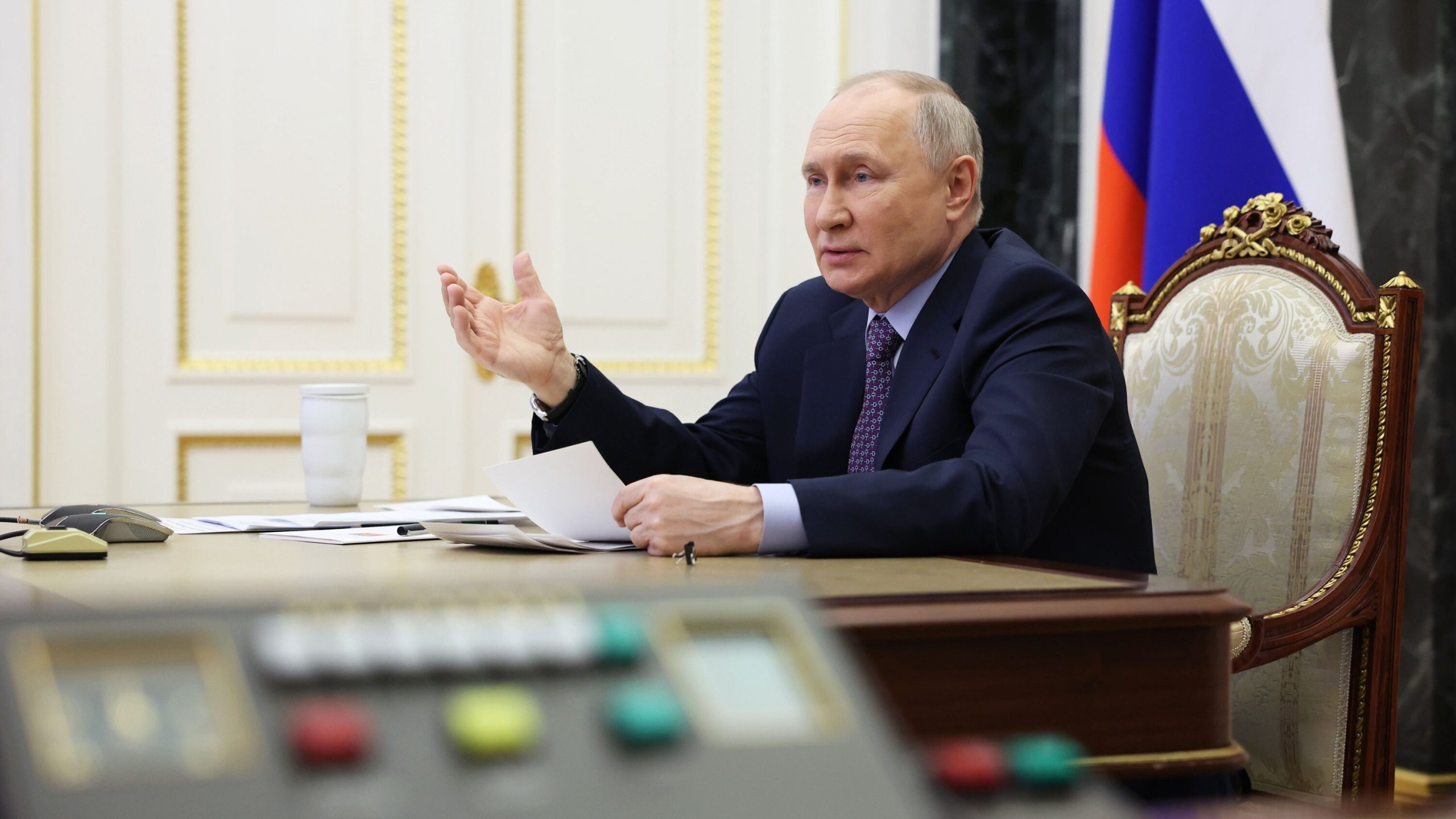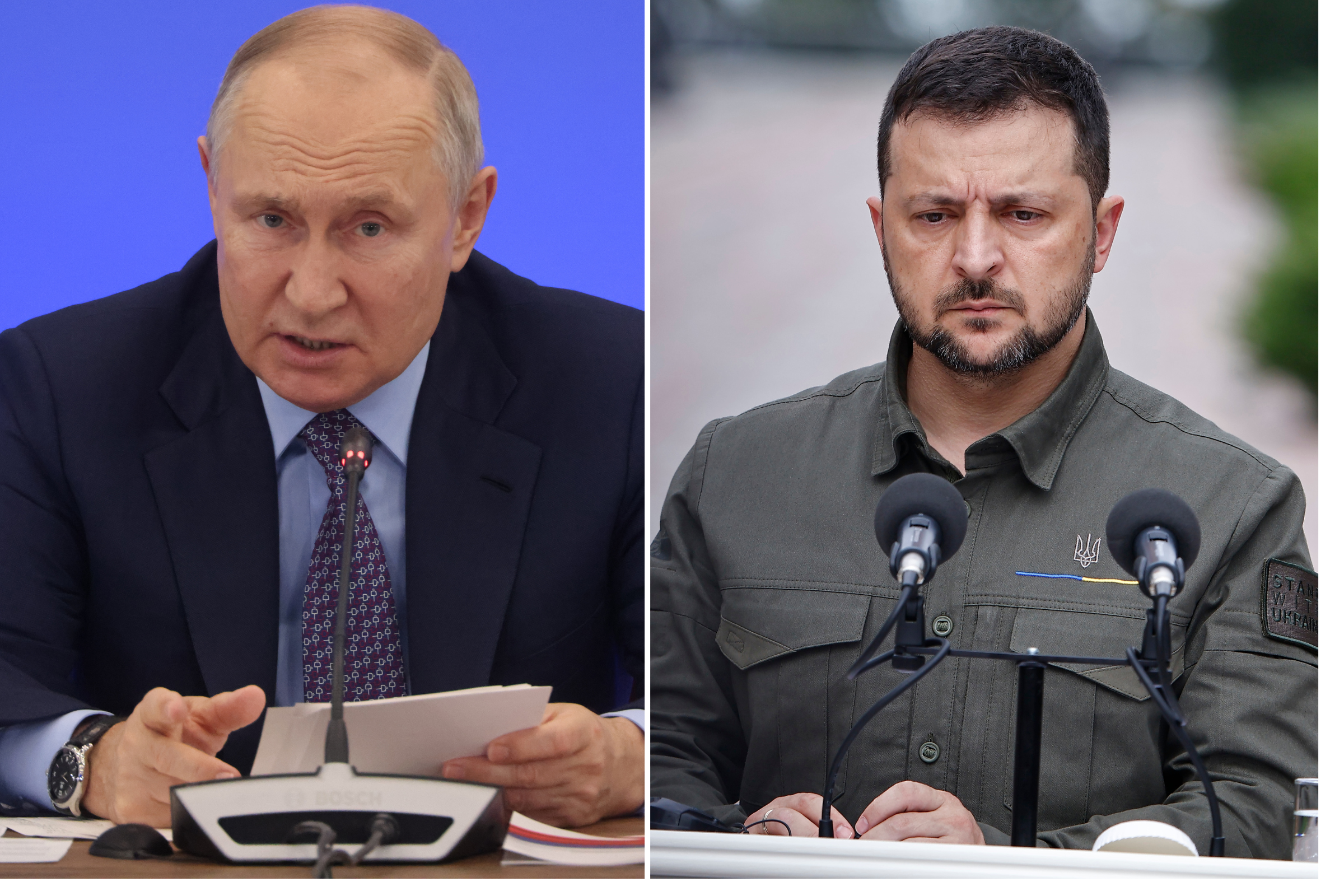Russian President Vladimir Putin recently emphasized in an interview with conservative commentator Tucker Carlson that the responsibility for resolving the Russia-Ukraine conflict rests solely with Ukrainian President Volodymyr Zelensky.
In the extensive two-hour interview, which aired on Thursday, Putin asserted his willingness to engage in negotiations to bring an end to the conflict. He claimed that Zelensky had enacted a decree, allegedly influenced by the United States, which hindered negotiations, characterizing Ukraine as a “satellite state” of the U.S.
The background to this discussion lies in Russia’s invasion of Ukraine on February 24, 2022. Initial talks between the Zelensky and Putin administrations ceased due to perceived lack of progress, leading Putin to announce the annexation of four Ukrainian regions. In response, Zelensky signed a decree prohibiting negotiations with Putin directly but didn’t rule out dialogue with other Russian officials.

Putin The New York Times)
Putin criticized Zelensky during the interview, citing Zelensky’s decree as an obstacle to negotiation. He expressed readiness for dialogue while accusing Ukraine of being under U.S. influence. Putin alleged that Ukraine’s refusal to negotiate was at the behest of Washington.
Zelensky, on the other hand, has remained steadfast in his refusal to negotiate any peace terms that do not include the return of all territory, including Crimea, annexed by Russia in 2014.
Experts, such as Kusti Salm of the Estonian Defense Ministry, have suggested that a resolution to the conflict and security for NATO may only be achievable if Russia perceives defeat and withdrawal as inevitable.
There’s debate over whether negotiation would entail unacceptable territorial concessions for Ukraine, with some arguing that compromise could benefit the country in the long run. However, Zelensky’s demand for the return of Crimea seems improbable through negotiation, particularly with Putin poised for reelection.
Despite pressure on Zelensky to resume peace talks, he has reiterated his skepticism toward Putin’s intentions, describing Russia as a “terrorist country” and rejecting the possibility of a temporary ceasefire, fearing it would play into Russia’s hands.
As the situation unfolds, the stance of both leaders remains firm, prolonging the uncertainty surrounding the conflict.























